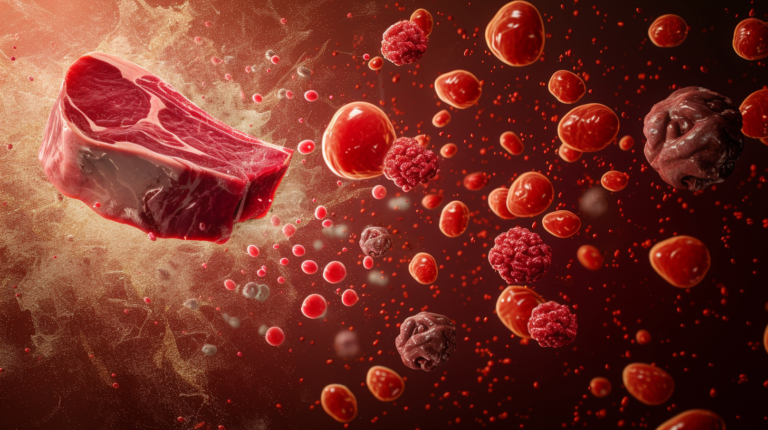Red meat has long been a staple in many diets, prized for its rich flavor and nutritional value. However, its relationship with cholesterol and heart health has been a subject of much debate. In this blog, we delve into the scientific nuances of red meat cholesterol and its impact on heart health. Understanding these aspects is crucial for making informed dietary choices. For a deeper understanding of the evolutionary perspective on meat consumption, you might find the article “What Did Neanderthals Eat?” enlightening. You can read more about it here. Additonally, if you are concerned about your heart health, want to refer yourself for a check up, or just fancy reading about cardiology related blogs, check out Heartsure.

The Nature of Cholesterol in Red Meat
Red meat, particularly high-quality beef, is known for its cholesterol content. However, it’s essential to understand the type of cholesterol present and its impact on the body. Cholesterol is a vital substance, necessary for the formation of cell membranes, vitamin D, and certain hormones. The cholesterol in red meat is primarily in the form of dietary cholesterol, which has a different impact on the body compared to the cholesterol produced internally by the liver. To explore the impact of different diets on health, including veganism, you may find the post “Vegan Diet Versus Animal-Based Diet: Health Perspective” interesting. More information can be found here.
Red Meat's Nutritional Profile and Its Impact on Heart Health
Red meat is not just about cholesterol; it’s a powerhouse of essential nutrients. These include high-quality protein, vitamins B12, B6, iron, zinc, and selenium. These nutrients play a crucial role in various bodily functions, including immune response and brain health. In the context of heart health, the presence of these nutrients in red meat can be beneficial. For more insights into the nutritional benefits of red meat, the article “Beef as an Optimal Choice for Nutrient-Dense Nutrition” is a valuable read. Discover more here.


Evolutionary Perspective on Red Meat Consumption
From an evolutionary standpoint, humans have consumed red meat for millions of years. Our bodies have evolved to digest and utilize the nutrients found in animal products efficiently. This evolutionary adaptation suggests that red meat, consumed in its natural and unprocessed form, aligns well with our physiological needs.
Moreover, red meat’s role in traditional diets has often been in balance with other food sources, like seasonal fruits and vegetables. This balance is crucial in maintaining overall health and heart health in particular. The contemporary approach to red meat consumption should ideally reflect this balance, emphasizing quality and moderation over quantity.
In conclusion, the relationship between red meat cholesterol and heart health is multifaceted and must be understood in the context of overall dietary patterns and lifestyle choices. Red meat, when consumed responsibly and as part of a balanced diet, can be a valuable source of essential nutrients without necessarily posing a significant risk to heart health.